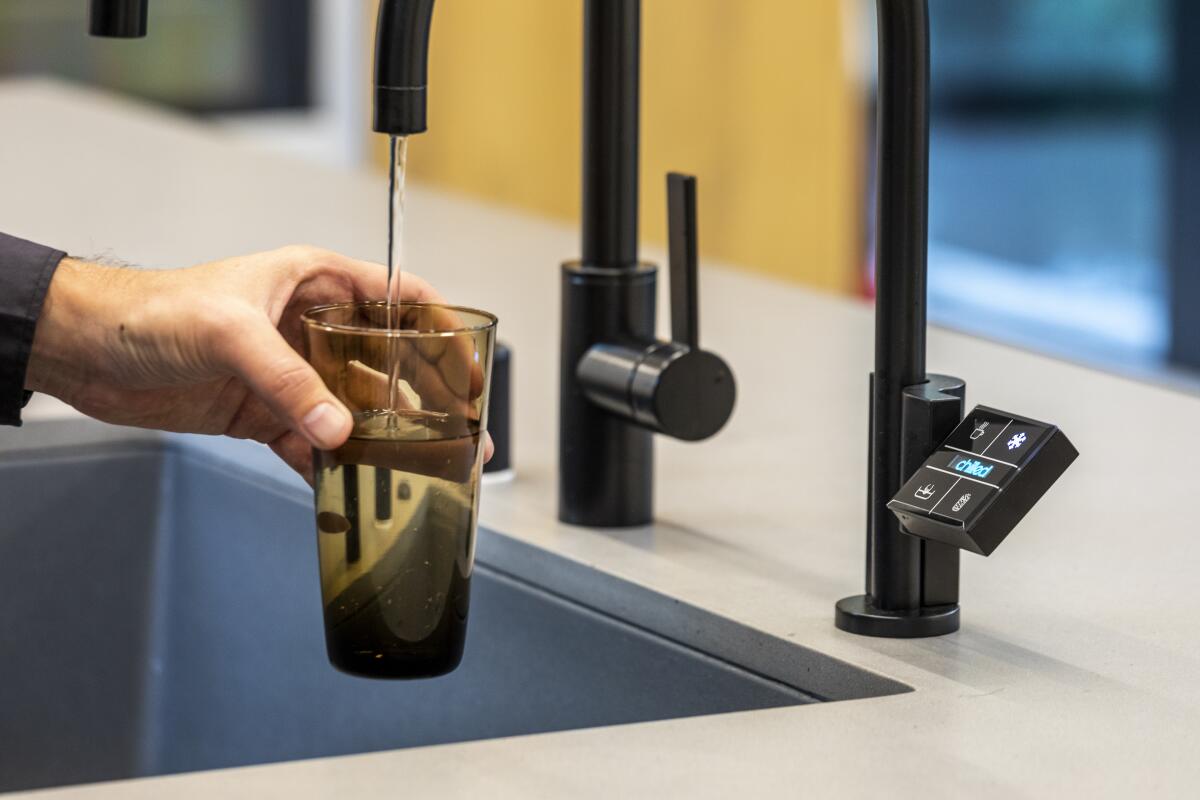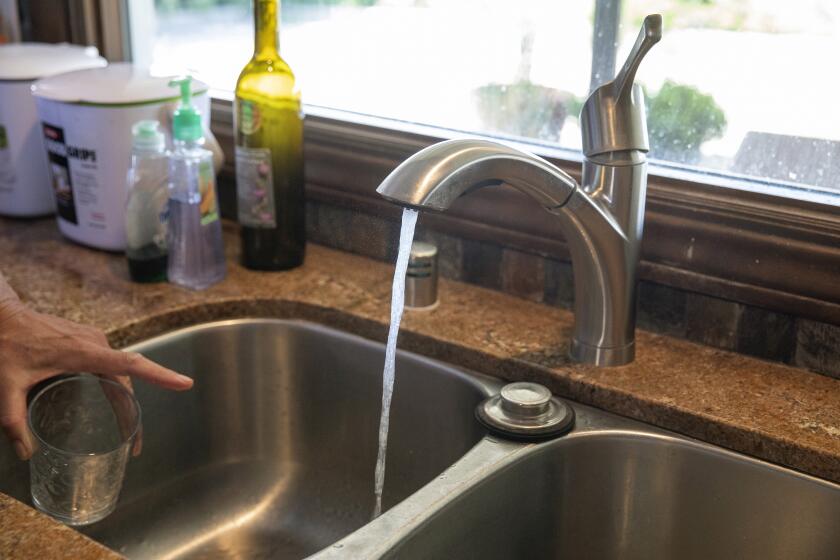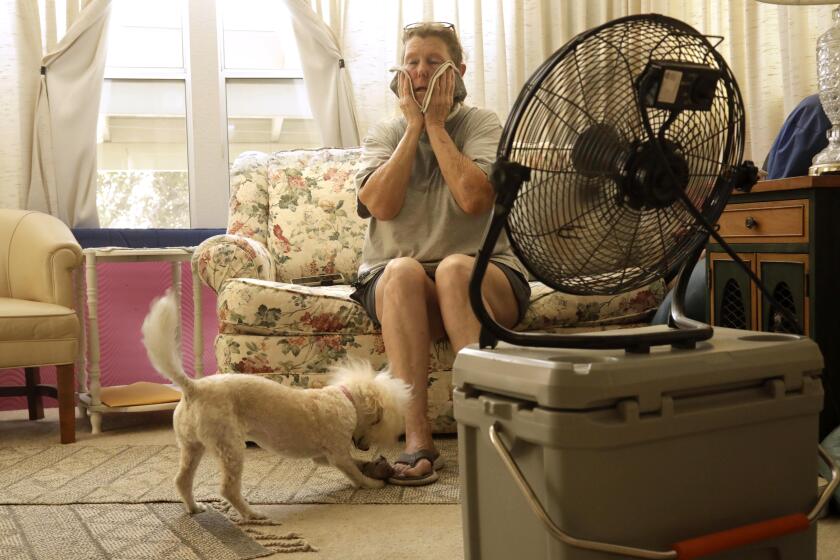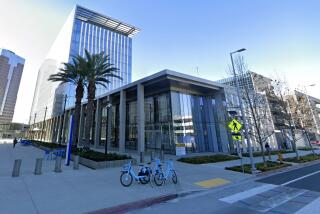Los Angeles DWP to end water and power shutoffs for low-income customers who can’t pay

- Share via
Low-income residents, senior citizens and other eligible customers of the Los Angeles Department of Water and Power will no longer face shutoffs if they are unable to pay their utility bills, the agency announced Wednesday.
Under a motion adopted unanimously by the Los Angeles Board of Water and Power Commissioners, the DWP must halt the practice of water and power shutoffs as a debt collection tool for residents enrolled in its EZ-SAVE program, which offers discounts for income-qualified residents, as well as those enrolled in the Senior Citizen Lifeline Discount Program.
The motion also prohibits shutoffs for all customers during extreme weather events such as heat waves, the agency said. About 147,000 customers are enrolled in EZ-SAVE and 90,000 in the senior citizen program.
“The department has learned a lot through COVID, and through the series of events and persistent calls for equity,” said commission President Cynthia McClain-Hill. “And based on what we have learned, we think that it is critically important that we take steps necessary to protect and to support all of our residents, including those that are income challenged, and steps that are concrete and that contribute to their quality of life.”
The agency will work with customers who cannot pay their bills to provide information about discounts, payment plans and other means of financial assistance, as well as strategies to reduce their water and power usage, she said.
The Water Rate Assistance Program, which Gov. Gavin Newsom vetoed last month, would have created a water affordability program for low-income households.
The directive comes as millions of Californians struggle to pay water and electric bills that have been driven ever higher by drought and extreme heat, as well as economic challenges exacerbated by inflation and the COVID-19 pandemic. Utility debt among DWP customers soared from $85.6 million in February 2020 to $226.9 million as of August, according to a recent report from advocacy group RePower LA.
What’s more, low-income communities and communities of color are disproportionately affected by utility debt and shutoffs, according to DWP data and research from the UCLA Luskin Center for Innovation. That includes areas such as South L.A., East Los Angeles and portions of the San Fernando Valley.
The motion is “a strong step forward in ensuring there is basic access to water and power for low income communities of color,” RePower LA director Victor Sanchez said in a statement.
“There is still more work to be done to make sure utilities remain affordable, but stopping shutoffs for our most economically vulnerable ratepayers prevents a mother from having to choose between rent, transportation or her energy bill,” Sanchez said. “We can’t ignore these real-world choices community members are still making in the face of mounting utility debt.”
A recent report found that Black, Latino and low-income households in L.A. bear the brunt of utility shutoffs. Here’s what to do if you lose water, electricity or gas service.
Though California adopted its Human Right to Water Act in 2012 — which declares that all residents have a right to clean, safe and affordable drinking water — nearly a million residents still lack access to such supplies, according to state data.
McClain-Hill said shutoffs were a “regular part” of the department’s practice in the years prior to the COVID-19 pandemic, which prompted the DWP to issue a moratorium on shutoffs. Between January 2017 and January 2020, more than 77,000 residential customers were shut off at least once, according to DWP data. Of those, about 69% were shut off at least once for power, 15% at least once for water and 16% at least once for both water and power.
The data also show that lower income communities experienced higher instances of shutoffs, and Black and Latino-majority communities were twice or more likely to experience a shutoff than other groups. Additionally, the duration of shutoffs was generally longer for burdened communities.
Greg Pierce, co-director for UCLA’s Luskin Center, said in a statement that the research and data “show the importance and need for this type of action.”
“Protection from utility shutoffs for those enrolled in low-income discount programs will help lessen the debt burden for LADWP’s most vulnerable customers,” he said.
The Los Angeles Department of Water and Power has launched two new programs to help lower-income Angelenos stay cooler and not get burned by peak summer electric bills.
The board also reviewed UCLA findings on DWP shutoff patterns, which found that low-income customers paid their utility bills at the same rate or higher than all customers before, during and after COVID-19 shutoff moratoriums.
The finding eliminates any concerns about people taking advantage of the system, McClain-Hill said.
“The fact that these customers — when they have the opportunity, when they can — do pay, really does remove, from my perspective, the power of that argument,” she said, “and tells us that their lack of payment isn’t a lack of responsibility. ... It’s a result of their actual inability to pay the bill.”
The motion also directs the DWP to ramp up efforts to improve affordability, secure utility debt relief and increase awareness of and enrollment in the EZ-SAVE and senior citizen programs, among other actions. And while the agency can no longer shut off services as a form of debt collection, it may still shut them off in instances of illegal activity or theft, officials said.
The DWP had previously shared plans to restart shutoffs for non-discounted residential customers in May 2023 and discounted residential customers in September 2023, according to the commission.
More to Read
Sign up for Essential California
The most important California stories and recommendations in your inbox every morning.
You may occasionally receive promotional content from the Los Angeles Times.














